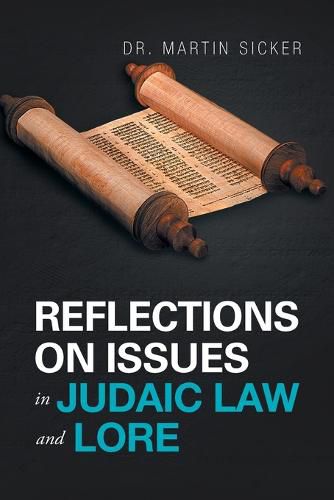Readings Newsletter
Become a Readings Member to make your shopping experience even easier.
Sign in or sign up for free!
You’re not far away from qualifying for FREE standard shipping within Australia
You’ve qualified for FREE standard shipping within Australia
The cart is loading…






This title is printed to order. This book may have been self-published. If so, we cannot guarantee the quality of the content. In the main most books will have gone through the editing process however some may not. We therefore suggest that you be aware of this before ordering this book. If in doubt check either the author or publisher’s details as we are unable to accept any returns unless they are faulty. Please contact us if you have any questions.
The fundamental basis of Judaism, as is well known, is the Torah, the teachings contained in the Pentateuch, the five biblical books the composition of which is traditionally attributed to Moses. These teachings may be grouped in two basic categories, matters between man and man, individually as well as societally, and matters between man and God. The basic guidelines that apply in matters between man and man are referred to as mishpatim or 'ordinances, ' whereas those applying to matters between man and God are referred to as 'statutes.' The fundamental distinction between the two categories is that the 'ordinances' are subject to human judgment, whereas the 'statutes' are not; the divine reason for them a mystery, about which people may speculate but cannot know for certain. The present work is primarily concerned with four 'statutes' that have direct and significant impact on the lives of those committed to compliance with them. Since simply rejecting any of them is not an acceptable option, over the millennia since their codification in the Torah efforts have been made to deal with them under conditions that are significantly different from those that prevailed at the beginning of their revelation. Given that the 'statutes' as set forth in the Torah cannot be tampered with, issues have been raised regarding how they are to be applied in the contemporary Jewish world. These reflections are not intended to propose answers to those issues, but only to clarify their significance and their present treatment in the various schools of Judaic thought.
$9.00 standard shipping within Australia
FREE standard shipping within Australia for orders over $100.00
Express & International shipping calculated at checkout
This title is printed to order. This book may have been self-published. If so, we cannot guarantee the quality of the content. In the main most books will have gone through the editing process however some may not. We therefore suggest that you be aware of this before ordering this book. If in doubt check either the author or publisher’s details as we are unable to accept any returns unless they are faulty. Please contact us if you have any questions.
The fundamental basis of Judaism, as is well known, is the Torah, the teachings contained in the Pentateuch, the five biblical books the composition of which is traditionally attributed to Moses. These teachings may be grouped in two basic categories, matters between man and man, individually as well as societally, and matters between man and God. The basic guidelines that apply in matters between man and man are referred to as mishpatim or 'ordinances, ' whereas those applying to matters between man and God are referred to as 'statutes.' The fundamental distinction between the two categories is that the 'ordinances' are subject to human judgment, whereas the 'statutes' are not; the divine reason for them a mystery, about which people may speculate but cannot know for certain. The present work is primarily concerned with four 'statutes' that have direct and significant impact on the lives of those committed to compliance with them. Since simply rejecting any of them is not an acceptable option, over the millennia since their codification in the Torah efforts have been made to deal with them under conditions that are significantly different from those that prevailed at the beginning of their revelation. Given that the 'statutes' as set forth in the Torah cannot be tampered with, issues have been raised regarding how they are to be applied in the contemporary Jewish world. These reflections are not intended to propose answers to those issues, but only to clarify their significance and their present treatment in the various schools of Judaic thought.